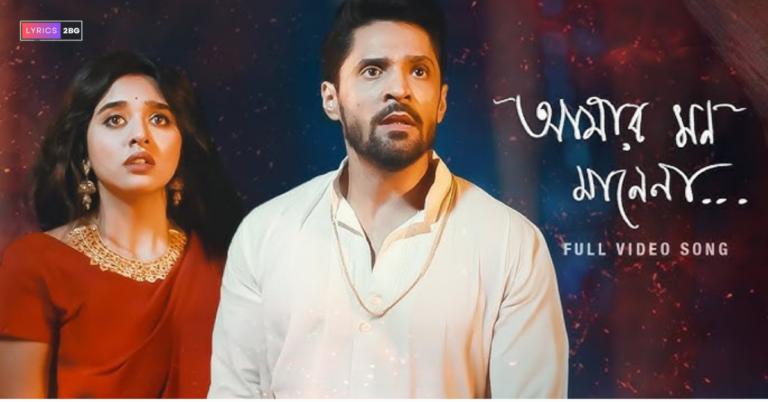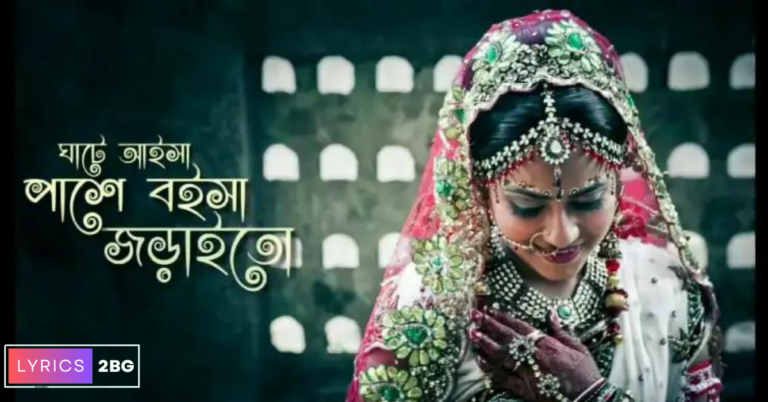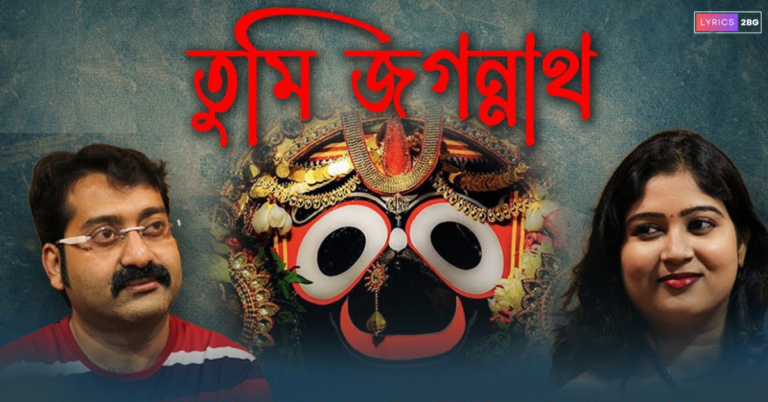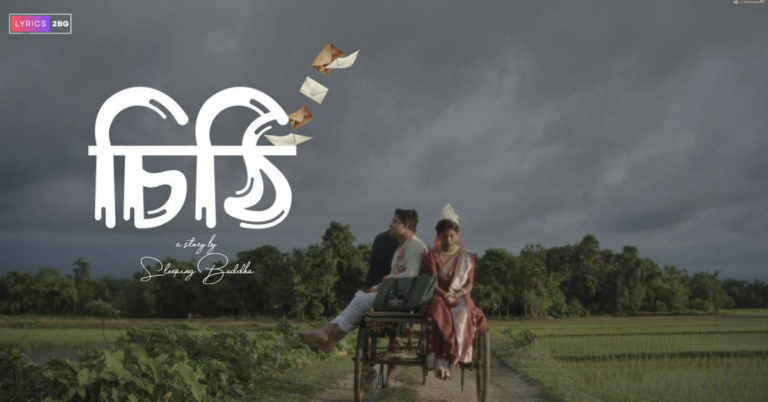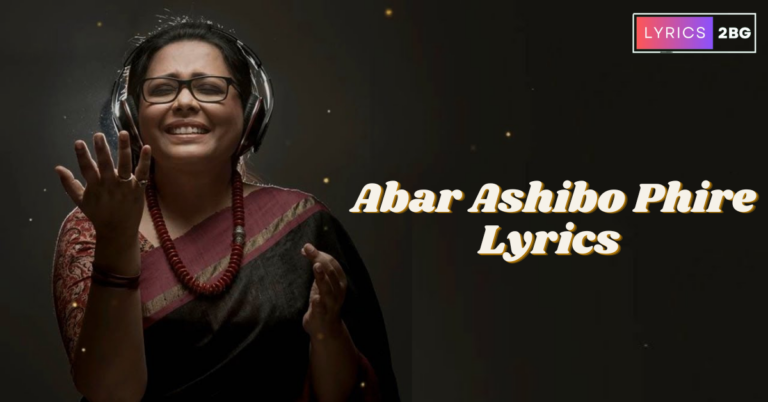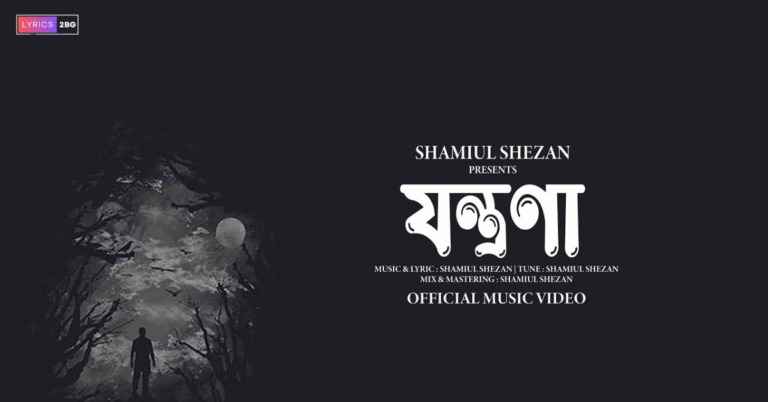Aha Ki Anondo Lyrics | আহা কি আনন্দ | Hirak Rajar Deshe
Aha ki Anondo Lyrics
আহা কি আনন্দ আকাশে বাতাসে
আহা কি আনন্দ আকাশে বাতাসে।
শাখে শাখে পাখি ডাকে
কত শোভা চারিপাশে,
শাখে শাখে পাখি ডাকে
কত শোভা চারিপাশে,
আহা কি আনন্দ আকাশে বাতাসে।
আজকে মোদের বড়ই সুখের দিন
আজকে মোদের বড়ই সুখের দিন,
আজ ঘরের বাঁধন ছেড়ে মোরা
হয়েছি স্বাধীন,
আজ ঘরের বাঁধন ছেড়ে মোরা
হয়েছি স্বাধীন, আহা হয়েছি স্বাধীন।
আজ আবার মোরা ভবঘুরে
মুলুক ছেড়ে যাবো দূরে,
আবার মোরা ভবঘুরে
মুলুক ছেড়ে যাবো দূরে,
ভরবো ভুবন গানের সুরে
ভরবো ভুবন গানের সুরে
পুরানো দিনের কথা আসে
মনে পুরানো দিনের কথা আসে,
মনে আসে, ফিরে আসে।
আহা কি আনন্দ আকাশে বাতাসে,
শাখে শাখে পাখি ডাকে
কত শোভা চারিপাশে,
আহা কি আনন্দ আকাশে বাতাসে।।
Meaning of Aha ki Anondo Lyrics
Aha ki Anondo lyrics titled “আহা কি আনন্দ আকাশে বাতাসে” is a Bengali composition that celebrates the joy and freedom found in the beauty of nature and the arrival of a happy day. The lyrics are filled with imagery and emotions that convey a sense of bliss and liberation. Aha ki Anondo lyrics begins by expressing the sheer delight of being under the open sky and feeling the gentle caress of the breeze. It portrays a sense of connection with the natural world as the birds sing from branch to branch, adding to the surrounding beauty.
As the Aha ki Anondo lyrics progresses, it celebrates a day of great happiness and freedom. The shackles of confinement are broken, signifying a moment of liberation. The day is characterized by a sense of independence and the release of all restrictions. Towards the end, the song reflects on the idea of exploring new horizons, leaving behind the familiar and embracing a journey into the unknown. It evokes nostalgia for days gone by and the memories associated with them, which resurface in the mind.

Overall, this song captures the essence of joy, freedom, and nostalgia, celebrating the beauty of nature and the emotions associated with significant moments in life. It’s a song that resonates with those who appreciate the simple pleasures of life and the profound connection between the human spirit and the natural world. It captures the beauty of nature, the excitement of new beginnings, and the significance of treasuring memories from the past.
About the Author of the Song
Aha Ki Anondo Song Is Sung by Anup Ghoshal from Hirak Rajar Deshe Bengali Movie. Starring: Tapen Chatterjee, Rabi Ghosh, Utpal Dutt, Soumitra Chatterjee And Others. Music Composed by And Aha Ki Anondo Akashe Batashe Lyrics In Bengali Written by Satyajit Ray. Cover Version Song Is Sung by Pritam Das from Taalpatar Shepai.
“Aha Ki Ananda” is a timeless classic composed by Satyajit Ray for the movie “Hirak Rajar Deshe” released in 1980. The cover version by Talpatar Sipahi likely revived interest in the song among younger listeners who might not have been familiar with the original. It introduced a new audience to a beloved song from the past and sparked nostalgia among those who grew up with the original version.
By covering a well-known song deeply rooted in Bengali culture, Talpatar Sipahi helped preserve and propagate the cultural heritage associated with the song. It ensured that the essence of the song and its cultural significance would be carried forward to future generations.

The cover version by Talpatar Sipahi, being a band from Bangladesh, might have contributed to cultural exchange between India and Bangladesh. The song’s popularity across borders signifies the shared cultural heritage between the two countries and fosters a sense of unity and connection among Bengali-speaking communities.
Overall, Talpatar Sipahi’s cover version of “Aha Ki Ananda” likely played a role in reintroducing and popularizing the song, preserving cultural heritage, offering a contemporary interpretation, and creating emotional connections among listeners. It contributed to the continued appreciation and celebration of this iconic song from “Hirak Rajar Deshe.”
Song: Aha Ki Ananda Lyrics
Artiste: Anup Ghoshal
Music Director: Satyajit Ray
Lyricist: Satyajit Ray
Film: Hirak Rajar Deshe
Release : 1980
Director : Satyajit Ray
Starcast : Tapen Chatterjee, Rabi Ghosh, Utpal Dutt, Soumitra Chatterjee, Santosh Dutta


